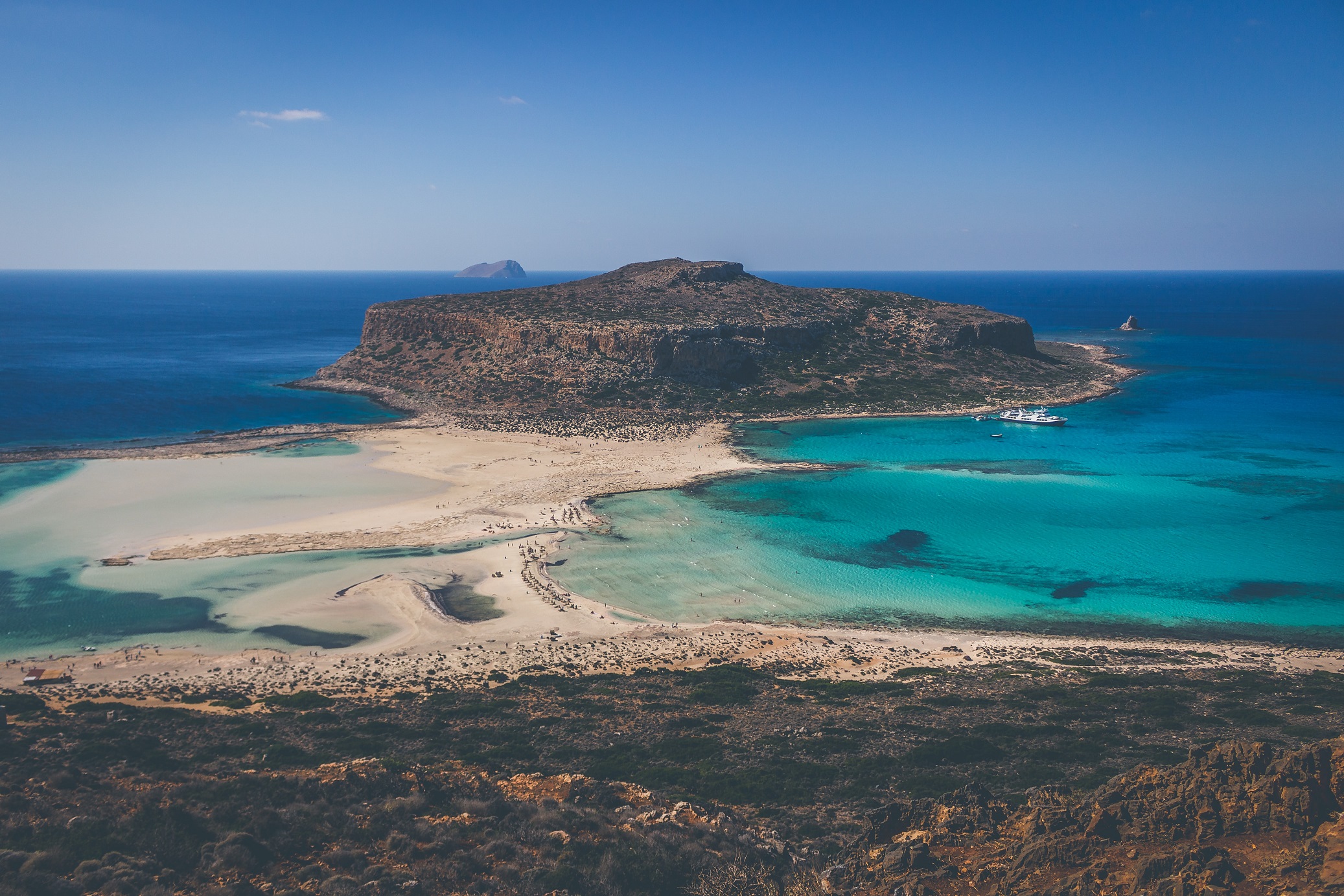Greek islands truly are dangerous – if you ever visit them, you risk losing a taste for other beach resorts of the world. Greece has over 200 inhabited islands across three seas for visitors to enjoy the cerulean sea, clean beaches, colorful sunsets, and numerous attractions. The relaxing experience is combined with enlightening, where history and mythos await explorers on the soil once walked on by gods, heroes, philosophers, and historic personalities. We have assembled a guide for you to discover the most beautiful and exciting islands of Greece.
Table of Contents
When to visit?
Although there is no particularly bad season to visit Greek islands, we find that the best time is in April to May and in September to November. Winters are sometimes too chilly to really enjoy the sea, and summers draw hordes of tourists. The transition seasons offer the best sunny weather, without the summer sultriness, and a relatively low levels of crowdedness.

Corfu
Corfu is one of the most famous islands of the country and is a perfect destination for a first visit to Greece. Its aquamarine sea, pebble beaches, and lush green landscape make it a prime tourist destination. It has also entered rankings of the best honeymoons and wedding spots in Europe – make notes, lovebirds.
Highlights: Paleokastritsa beaches, Corfu Museum of Asian Art, Palaio Frourio (Old Fortress)
Crete
Crete is the largest island of Greece, inexorably associated with many legends and myths: it is the birthplace of Zeus, the Minotaur Labyrinth used to be here, and it is the place Daedalus and Icarus started their journey from. Crete is something of a country of its own, with various landscapes including snow-capped mountains and caves, museums and ancient ruins, – and, of course, the beach galore.
Highlights: Matala beach, Aradena Gorge, Minoan palace of Knossos
Rhodes
Rhodes offers things to see and places to visit both in the daylight and at night. Rhodes has a long and turbulent history, and there are many opportunities for sightseeing. Don’t forget that the island once housed one of the seven wonders of the world – the Colossus of Rhodes. At night, the best clubs and bars open up for wild parties.
Highlights: St. Paul’s Bay Beach, Butterfly Valley, medieval citadel in Rhodes Town
Santorini
A true mystery, Santorini once was an active volcano. After an especially violent eruption around 1650 B.C., the center of the island sank. This story is supposed to be the basis for the tale of the lost city of Atlantis. On the edge of the crater left by the eruption now lies a snow-white fairytale city of Fira. Another natural wonder of the island is its colorful beaches – the black and red sands are an interesting oddity of Santorini, caused by its volcanic past.
Highlights: Kamari Beach, the prehistoric settlement of Akrotiri, Fira to Oia Hike
Syros
Syros will give you the opportunity to indulge in a calm vacation of historical and cultural exploration without rubbing elbows with crowds of tourists. The charming towns of Syros bear an unmistakable Italian charm – no wonder, since for a long time it has been under Venetian control. There are fewer beaches than on other islands, but local seafood restaurants make up for it.
Highlights: Delfini Beach, Ermoupoli town hall, Apollo Theater
Mykonos
Mykonos – the name of an ancient ruler of the island, thought to be a grandson to Apollo. Today Mykonos is the “Ibiza of Greece”, with its beach parties and buoyant nightlife. Aside from the nightlife, the silky sand beaches of the island are the biggest attraction.
Highlights: Paradise Beach, Little Venice neighborhood, the Windmills (Kato Myli)
Naxos
Herodotus once called Naxos “the happiest of islands”. It does have many ingredients for uncompromised happiness: sunny beaches, warm climate, lovely architecture shaded by olive and fig groves. The recipe may also include local beverages: anise-flavored ouzo and lemony kitron. Additionally – windsurfing and kitesurfing, thanks to the winds of the west side of the island.
Highlights: Saint Procopius Beach (Agios Prokopios), temples of Apollo, Demeter, and Dionysus


